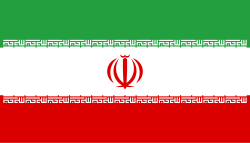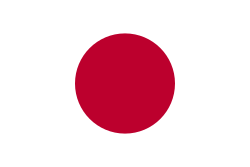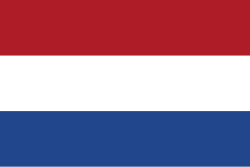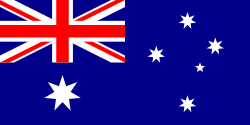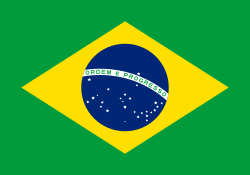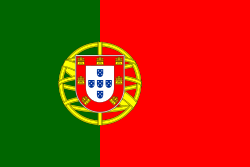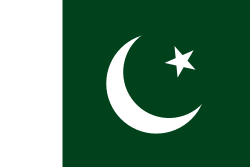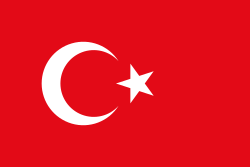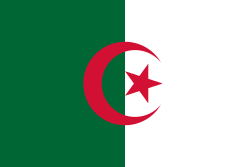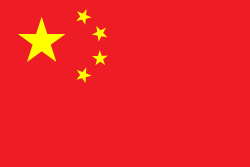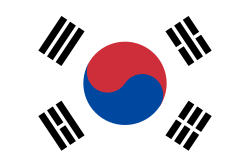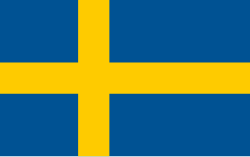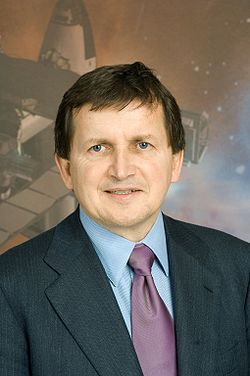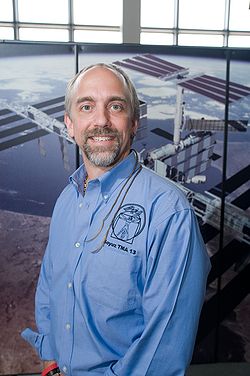Rymdturism
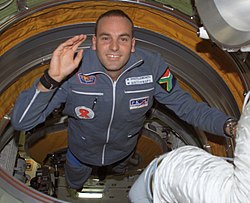

Rymdturism är rymdresor där privatpersoner deltar på egen bekostnad.
Under 1960- och 70-talen trodde många att så kallade "rymdhotell" skulle vara i bruk kring år 2000, och många trodde att i början av 2000-talet skulle alla familjer i västvärlden kunna åka på semester till månen. Än så länge är dock rymdturism så dyrt att bara ytterst förmögna personer och företag har råd med det.
Det som främst lockar med rymdturism är upplevelsens originalitet, den storslagna känslan av att se jorden från rymden, som statussymbol, samt för känslan av tyngdlöshet.
Milstolpar
Dennis Tito från USA blev 28 april-6 maj 2001[1][2] den förste rymdturisten då han åkte med den ryska farkosten Sojuz TM-32 till den Internationella rymdstationen (ISS) och sedan tillbaka till Jorden.
I september 2006 blev Anousheh Ansari den första kvinnliga rymdturisten[3].
I mars 2009 blev Charles Simonyi den förste rymdturist att besöka rymden en andra gång[4]. Han gjorde sin första rymdresa i april 2007[5].
Rymdturistföretag
Virgin Galactic
Virgin Galactic är ett brittiskt företag som planerade att börja med personliga rymdflygningar 2007, men av olika anledningar har detta försenats. Det är dock bara korta flygningar i måttlig fart, som når drygt 85 km höjd, och inte omloppsbana. Internationella flygfederationen (FAI) har definierat 100 km som en officiell gräns till rymden (Karmanlinjen), vilket Virgin Galactic inte når upp till med SpaceShip Two. De når dock upp till den gräns som USA:s väpnade styrkor satt upp för att få kalla en flygning rymdfärd, deras gräns är satt en höjd på ca 80 km (50 miles).
Den 29 juni 2023 genomförde Virgin Galactic sin första kommersiella flygning. Ombord fanns fyra personer från det italienska flygvapnet tillsammans med två piloter från Virgin Galactic.[6]
Blue Origin
Blue Origin är ett amerikansk företag som med hjälp av sin New Shepard-raket skjuter upp personer på en kastbanefärd till en höjd av drygt 100 km. Den första uppskjutningen med passagerare skedde under uppdraget NS-16 den 20 juli 2021. Ombord fanns bland annat Blue Origins grundare, Jeff Bezos, och Wally Funk som klarade de medicinska testen för att bli astronaut under Mercuryprogrammet, men inte fick bli astronaut på grund av att hon var kvinna. Flygningen nådde en höjd av 107 km.[7]
Axiom Space
Axiom Space erbjuder, genom ett samarbete med Space X, möjlighet att kunna resa till ISS. Första resan, Ax-1, lyfte mot ISS 8 april 2022.[8] Hösten 2023 köpte svenska staten en plats på Ax-3 för att skicka upp den svenska astronauten Marcus Wandt till ISS under januari 2024.[9]
Axiom Space planerar även att skicka upp moduler till ISS som på sikt ska kunna brytas loss för att bli en egen rymdstation där företaget ska kunna ta emot forskningslag och turister. De första segmenten planeras att skjutas upp under 2026.[10]
Rymdturister
Rysslands rymdbolag har skickat upp sju stycken rymdturister, till priset 20-40 miljoner US-dollar:
| Nr | Bild | Namn | Mål | Uppskjutning | Landning | Längd | Bolag |
|---|---|---|---|---|---|---|---|
| 1 |  | Dennis Tito | International Space Station | Sojuz TM-32 28 april 2001[1] | Sojuz TM-31 6 maj 2001[2] | 8 dagar | Space Adventures |
| 2 |  | Mark Shuttleworth | International Space Station | Sojuz TM-34 25 april 2002[11] | Sojuz TM-33 5 maj 2002[12] | 10 dagar | Space Adventures |
| 3 |  | Gregory Olsen | International Space Station | Sojuz TMA-7 1 oktober 2005[13] | Sojuz TMA-6 11 oktober 2005[14] | 10 dagar | Space Adventures |
| 4 |  | Anousheh Ansari | International Space Station | Sojuz TMA-9 18 september 2006[3] | Sojuz TMA-8 29 september 2006[15] | 10 dagar | Space Adventures |
| 5 |  | Charles Simonyi | International Space Station | Sojuz TMA-10 7 april 2007[5] | Sojuz TMA-9 21 april 2007[3] | 10 dagar | Space Adventures |
| International Space Station | Sojuz TMA-14 26 mars 2009[4] | Sojuz TMA-13 8 april 2009[16] | 14 dagar | Space Adventures | |||
| 6 |  | Richard Garriott | International Space Station | Sojuz TMA-13 12 oktober 2008[16] | Sojuz TMA-12 23 oktober 2008[17] | 13 dagar | Space Adventures |
| 7 |  | Guy Laliberté | International Space Station | Sojuz TMA-16 30 september 2009[18] | Sojuz TMA-14 11 oktober 2009[4] | 12 dagar | Space Adventures |
| 8 | Låg omloppsbana | Crew Dragon Resilience 16 september 2021 Inspiration4 | Crew Dragon Resilience 19 september 2021 Inspiration4 | 3 dagar | SpaceX | ||
| 9 | International Space Station | Sojuz MS-20 8 december 2021 | Sojuz MS-20 20 december 2021 | 12 dagar | Space Adventures | ||
| 10 | International Space Station | Crew Dragon Endeavour 8 april 2022 Ax-1 | Crew Dragon Endeavour 25 april 2022 | 17 dagar | Axiom Space | ||
| 11 | International Space Station | Crew Dragon Freedom 21 maj 2023 Ax-2 | Crew Dragon Freedom 31 maj 2023 | 10 dagar | Axiom Space | ||
| 12 | Medelhög omloppsbana | Crew Dragon Resilience 10 september 2024 Polaris Dawn | Crew Dragon Resilience 15 september 2024 Polaris Dawn | 4 dagar | SpaceX |
Kastbanefärd
| Datum | Längd | Flygning | Turister | Bolag |
|---|---|---|---|---|
| 20 juli 2021 (RSS First Step) | 10 minuter | NS-16 | Blue Origin | |
| 13 oktober 2021 (RSS First Step) | 10 minuter | NS-18 | Blue Origin | |
| 11 december 2021 (RSS First Step) | 10 minuter | NS-19 | Blue Origin | |
| 31 mars 2022 (RSS First Step) | 10 minuter | NS-20 | Blue Origin | |
| 4 juni 2022 (RSS First Step) | 10 minuter | NS-21 | Blue Origin | |
| 4 augusti 2022 (RSS First Step) | 10 minuter | NS-22 | Blue Origin | |
| 10 augusti 2023 (VSS Unity) | 15 minuter | Galactic 02 | Virgin Galactic | |
| 8 september 2023 (VSS Unity) | 15 minuter | Galactic 03 | Virgin Galactic | |
| 6 oktober 2023 (VSS Unity) | 15 minuter | Galactic 04 | Virgin Galactic | |
| 2 november 2023 (VSS Unity) | 15 minuter | Galactic 05 | Virgin Galactic | |
| 26 januari 2024 (VSS Unity) | 15 minuter | Galactic 06 | Virgin Galactic | |
| 19 maj 2024 (RSS First Step) | 9 min, 53 sek | NS-25 | Blue Origin | |
| 8 juni 2024 (VSS Unity) | 15 minuter | Galactic 07 | Virgin Galactic | |
| 29 augusti 2024 (RSS First Step) | 10 min, 8 sek | NS-26 | Blue Origin |
Se även
Externa länkar
- An occupation for a space tourist. (in portuguese)
- Rymdturism.se är en webbplats där de senaste nyheterna kring rymdturism presenteras – på svenska och på en nivå som gör att en bredare publik kan ta till sig detta nya fenomen inom branschen för äventyrsresor.
- Christmas Day lift-off into space for Virgin Galactic and Abu Dhabi
Källor
- ^ [a b] ”spacefacts.de Soyuz-TM-32” (på engelska). Space Facts. http://www.spacefacts.de/mission/english/soyuz-tm32.htm. Läst 14 maj 2017.
- ^ [a b] ”spacefacts.de Soyuz-TM-31” (på engelska). Space Facts. http://www.spacefacts.de/mission/english/soyuz-tm31.htm. Läst 14 maj 2017.
- ^ [a b c] ”spacefacts.de Soyuz-TMA-9” (på engelska). Space Facts. http://www.spacefacts.de/mission/english/soyuz-tma9.htm. Läst 14 maj 2017.
- ^ [a b c] ”spacefacts.de Soyuz-TMA-14” (på engelska). Space Facts. http://www.spacefacts.de/mission/english/soyuz-tma14.htm. Läst 14 maj 2017.
- ^ [a b] ”spacefacts.de Soyuz-TMA-10” (på engelska). Space Facts. http://www.spacefacts.de/mission/english/soyuz-tma10.htm. Läst 14 maj 2017.
- ^ Mike Wall (29 juni 2023). ”Virgin Galactic aces its 1st-ever commercial launch of suborbital space plane (video)” (på engelska). Space.com. https://www.space.com/virgin-galactic-first-commercial-mission-success. Läst 13 februari 2024.
- ^ Jeff Foust (20 juli 2021). ”Blue Origin launches Bezos on first crewed New Shepard flight” (på amerikansk engelska). SpaceNews. https://spacenews.com/blue-origin-launches-bezos-on-first-crewed-new-shepard-flight/. Läst 13 februari 2024.
- ^ Chelsea Gohd (8 april 2022). ”SpaceX launches Ax-1, the 1st fully private astronaut mission to the space station” (på engelska). Space.com. https://www.space.com/spacex-ax1-mission-launch-success. Läst 13 februari 2024.
- ^ ”Astronauten Marcus Wandt har kommit hem”. SVT Nyheter. 9 februari 2024. https://www.svt.se/nyheter/utrikes/astronauten-marcus-wandt-kommer-hem. Läst 13 februari 2024.
- ^ Josh Dinner (15 juni 2023). ”Private space station: How Axiom Space plans to build its orbital outpost” (på engelska). Space.com. https://www.space.com/axiom-space-private-station-iss-2026. Läst 13 februari 2024.
- ^ ”spacefacts.de Soyuz-TM-34” (på engelska). Space Facts. http://www.spacefacts.de/mission/english/soyuz-tm34.htm. Läst 14 maj 2017.
- ^ ”spacefacts.de Soyuz-TM-33” (på engelska). Space Facts. http://www.spacefacts.de/mission/english/soyuz-tm33.htm. Läst 14 maj 2017.
- ^ ”spacefacts.de Soyuz-TMA-7” (på engelska). Space Facts. http://www.spacefacts.de/mission/english/soyuz-tma7.htm. Läst 14 maj 2017.
- ^ ”spacefacts.de Soyuz-TMA-6” (på engelska). Space Facts. http://www.spacefacts.de/mission/english/soyuz-tma6.htm. Läst 14 maj 2017.
- ^ ”spacefacts.de Soyuz-TMA-8” (på engelska). Space Facts. http://www.spacefacts.de/mission/english/soyuz-tma8.htm. Läst 14 maj 2017.
- ^ [a b] ”spacefacts.de Soyuz-TMA-13” (på engelska). Space Facts. http://www.spacefacts.de/mission/english/soyuz-tma13.htm. Läst 14 maj 2017.
- ^ ”spacefacts.de Soyuz-TMA-12” (på engelska). Space Facts. http://www.spacefacts.de/mission/english/soyuz-tma12.htm. Läst 14 maj 2017.
- ^ ”spacefacts.de Soyuz-TMA-16” (på engelska). Space Facts. http://www.spacefacts.de/mission/english/soyuz-tma16.htm. Läst 14 maj 2017.
Media som används på denna webbplats
Färg som används: National flag | South African Government and Pantone Color Picker
| grön | rendered as RGB 0 119 73 | Pantone 3415 C |
| gul | rendered as RGB 255 184 28 | Pantone 1235 C |
| röd | rendered as RGB 224 60 49 | Pantone 179 C |
| blå | rendered as RGB 0 20 137 | Pantone Reflex Blue C |
| vit | rendered as RGB 255 255 255 | |
| svart | rendered as RGB 0 0 0 |
Flag of Iran. The tricolor flag was introduced in 1906, but after the Islamic Revolution of 1979 the Arabic words 'Allahu akbar' ('God is great'), written in the Kufic script of the Qur'an and repeated 22 times, were added to the red and green strips where they border the white central strip and in the middle is the emblem of Iran (which is a stylized Persian alphabet of the Arabic word Allah ("God")).
The official ISIRI standard (translation at FotW) gives two slightly different methods of construction for the flag: a compass-and-straightedge construction used for File:Flag of Iran (official).svg, and a "simplified" construction sheet with rational numbers used for this file.
Kanadas flagga, införd 1965; denna version med Pantone‐nyanser. Nuvarande utformning ersatte den tidigare kanadensiska Red Ensign.
Flag of Israel. Shows a Magen David (“Shield of David”) between two stripes. The Shield of David is a traditional Jewish symbol. The stripes symbolize a Jewish prayer shawl (tallit).
Flag of Portugal, created by Columbano Bordalo Pinheiro (1857–1929), officially adopted by Portuguese government in June 30th 1911 (in use since about November 1910). Color shades matching the RGB values officially reccomended here. (PMS values should be used for direct ink or textile; CMYK for 4-color offset printing on paper; this is an image for screen display, RGB should be used.)
The Flag of Europe is the flag and emblem of the European Union (EU) and Council of Europe (CoE). It consists of a circle of 12 golden (yellow) stars on a blue background. It was created in 1955 by the CoE and adopted by the EU, then the European Communities, in the 1980s.
The CoE and EU are distinct in membership and nature. The CoE is a 47-member international organisation dealing with human rights and rule of law, while the EU is a quasi-federal union of 27 states focused on economic integration and political cooperation. Today, the flag is mostly associated with the latter.
It was the intention of the CoE that the flag should come to represent Europe as a whole, and since its adoption the membership of the CoE covers nearly the entire continent. This is why the EU adopted the same flag. The flag has been used to represent Europe in sporting events and as a pro-democracy banner outside the Union.bendera Indonesia
Charles Simonyi will fly as space flight participant on the Expedition 15 mission next year. He posed for photos, along with his crewmates, during a press briefing at the Johnson Space Center on Dec. 13, 2006.
MAVEN at Mars, Artist's Concept. This artist's concept depicts NASA's Mars Atmosphere and Volatile EvolutioN (MAVEN) spacecraft near Mars. MAVEN is in development for launch in 2013 and will be the first mission devoted to understanding the Martian upper atmosphere. The mission's principal investigator is Bruce Jakosky from the Laboratory for Atmospheric and Space Physics at the University of Colorado.
The goal of MAVEN is to determine the role that loss of atmospheric gas to space played in changing the Martian climate through time. MAVEN will determine how much of the Martian atmosphere has been lost over time by measuring the current rate of escape to space and gathering enough information about the relevant processes to allow extrapolation backward in time.
NASA Goddard Space Flight Center in Greenbelt, Md. manages the project and will also build some of the instruments for the mission. In addition to the principal investigator coming from CU-LASP, the university will provide science operations, build instruments, and lead education/public outreach. Lockheed Martin of Littleton, Colo., is building the spacecraft and will perform mission operations. The University of California-Berkeley Space Sciences Laboratory is also building instruments for the mission. NASA's Jet Propulsion Laboratory, Pasadena, Calif., will provide navigation support, the Deep Space Network, and the Electra telecommunications relay hardware and operations.
For more information about MAVEN, visit www.nasa.gov/maven.The Soyuz TMA-14 launches from the Baikonur Cosmodrome in Kazakhstan on March 26, 2009 carrying the crew of Gennady I. Padalka, Expedition 19 commander; and Michael R. Barratt, flight engineer, along with spaceflight participant Charles Simonyi to the International Space Station.
Dennis Tito, the first private citizen to visit the International Space Station, shares his experiences with visitors at the 40th Space Congress. Held April 29-May 2, 2003, in Cape Canaveral, Fla., the Space Congress is an international conference that gathers attendees from the scientific community, the space industry workforce, educators and local supporting industries. This year's event commemorated the 40th anniversary of the Kennedy Space Center and the Centennial of Flight. The theme for the Space Congress was "Linking the Past to the Future: A Celebration of Space."
Greg Olsen, Soyuz Spaceflight Participant, attired in a Russian Sokol suit, takes a break from a training session in Star City, Russia to pose for a portrait.
Daisuke Enomoto and Anousheh Ansari, primary and backup spaceflight participants, respectively, for the ISS Soyuz 13 (TMA-9) mission to the International Space Station. The spaceflight participant will launch with Expedition 14 and land with Expedition 13 under a commercial contract with the Russian Federal Space Agency.
Spaceflight participant Guy Laliberté responds to a reporter's question during a press conference at the Johnson Space Center on July 23. Laliberté shared the days with Expedition 21/22 crewmembers Jeff Williams and Maxim Suraev.
American spaceflight participant Richard Garriott poses for a portrait following an Expedition 18/Soyuz 17 pre-flight press conference at NASA's Johnson Space Center. Garriott is scheduled to fly to the International Space Station in October under a commercial agreement with the Russian Federal Space Agency.
Soyuz 4 Flight Participant Mark Shuttleworth, a South African businessman flying to the International Space Station (ISS) under a private commercial agreement with the Russian Aviation and Space Agency (Rosaviakosmos), listens to briefing in the Johnson Space Center's Space Station Training Facility (SSTF).
ISS004-E-10635 (27 April 2002) --- South African space flight participant Mark Shuttleworth enters the functional cargo block’s (FGB) pressurized adapter on the International Space Station (ISS). Shuttleworth and his Soyuz Taxi crewmates, Commander Yuri Gidzenko and Flight Engineer Roberto Vittori of the European Space Agency (ESA), arrived at the orbital outpost on April 27, 2002 at 2:56 a.m. (CDT) as the two vehicles flew over Central Asia.



